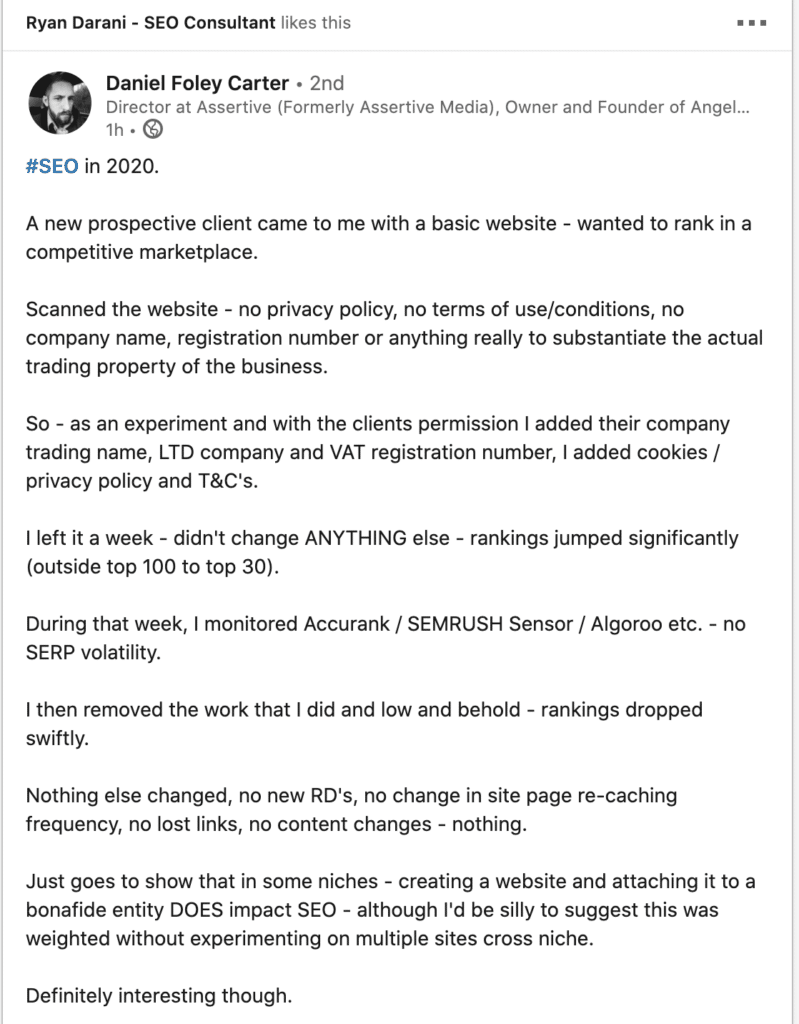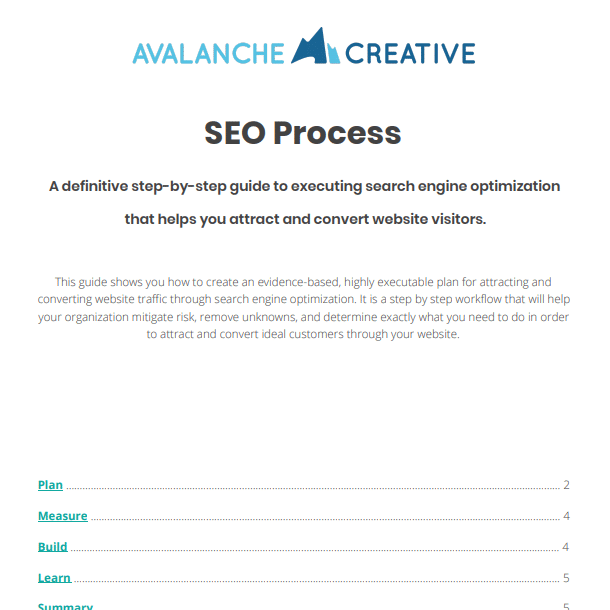Do You Have Trust Issues?
If you don't have an updated Privacy Policy, Terms of Service, and Cookies disclaimer, your website has trust issues in the eyes of Google. Make sure to have these items added to your site to maximize rankings!

Category: Search Engine Optimization | Tags: SEO, avalanche email
Do you have trust issues?
I don’t mean personally. I mean does your company website have trust issue?
If you don’t have an accurate, accessible, and up-to-date:
- Privacy Policy
- Terms of Service/Use
- Cookies disclaimer
then you might have trust issues… at least, in the eyes of Google and other search engines.
Check out this recent LinkedIn post by an SEO guy. It’s a case study of how adding these items can boost rankings:
I’ll be the first to admit that I often overlook the boring, legal stuff.
Nobody reads it! It doesn’t add any value to the site!
But, they are items on your website that can improve your trust factor (and they protect you and your website visitors, as well).
Google wants to recommend sites they trust or deem trustworthy.
Websites that protect their visitors, are transparent and clear about who they are, and tell you how they use our information, are one of the many ways you can signal to Google that you are trustworthy.
The Takeaway
Go and make sure you have a terms of service/use, privacy policy, and cookie policy on your site and that it’s:
- Accurate.
- Up to date.
- Accessible via your site navigation.
- Indexable for search engines.
If you need an incentive for doing this rather boring, tedious work, go grab your favorite box of cookies and do this:
Want to chat about trust and SEO over a box of cookies? Let me know by commenting on this post, and I may just send you a box of cookies!
Share this article:
The Avalanche Email: Fun. Simple. Educational. No Selling.
Learn Result-focused SEO & Content
Join over 2,272+ others who get one email every Wednesday with simple instructions on how to get more website traffic and leads through SEO and content marketing. (Learn more about the email)
Share this article:







